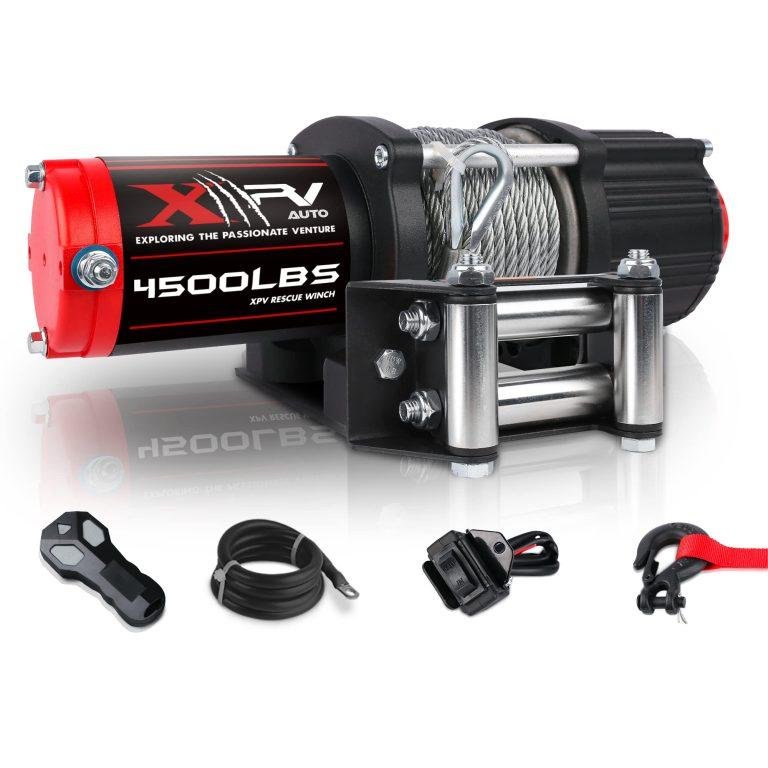Hydraulic fluid and hydraulic oil are terms used interchangeably to refer to the same thing – a liquid substance used in hydraulic systems to transmit power. These fluids or oils are specifically designed to meet the demands of hydraulic systems, providing lubrication, heat transfer, and sealing capabilities.
They are made up of a base oil and various additives to enhance their performance and protect the hydraulic equipment from wear, corrosion, and oxidation. In industrial and automotive applications, hydraulic fluid or oil is a crucial component in ensuring the smooth operation of hydraulic machinery.
It is important to choose the right type and grade of fluid or oil for the specific requirements of the hydraulic system to maintain its efficiency and longevity. Proper maintenance and regular fluid/oil changes also play a vital role in maximizing the performance and lifespan of hydraulic systems.

Credit: shieldoils.com
Understanding The Basics
Hydraulic fluid and hydraulic oil are often used interchangeably, but they have distinct differences. While hydraulic fluid is a generic term that includes various types of substances, hydraulic oil specifically refers to petroleum-based lubricants used in hydraulic systems. Understanding this distinction is crucial for maintaining the efficiency and performance of hydraulic machinery.
What Is Hydraulic Fluid And Hydraulic Oil?
Hydraulic systems play a crucial role in various industries, powering heavy machinery and equipment. Two essential components of hydraulic systems are hydraulic fluid and hydraulic oil. While these terms are often used interchangeably, it is important to understand the key differences between them.
Understanding The Basics:
- Hydraulic fluid:
- Hydraulic fluid is a medium used in hydraulic systems to transmit power and lubricate moving parts.
- It serves as the energy transfer medium, absorbing and transmitting force within the system.
- Primarily composed of mineral oils, synthetic compounds, or water-based fluids.
- Offers excellent lubrication, corrosion resistance, and heat transfer properties.
- Comes in a range of viscosity levels depending on the application and operating temperature.
- Hydraulic fluid is crucial for the efficient functioning of hydraulic systems, ensuring smooth operation and preventing wear and tear.
- Hydraulic oil:
- Hydraulic oil, on the other hand, refers specifically to the oil-based hydraulic fluid used in most hydraulic systems.
- Usually formulated from petroleum-based oils for optimal performance.
- Provides lubrication and reduces friction, minimizing wear on critical components.
- Contains additives that enhance its properties, such as anti-wear agents, anti-foaming agents, and rust inhibitors.
- Hydraulic oil is designed to withstand high pressure and temperature conditions.
- It is resistant to oxidation and degradation, maintaining its performance over extended periods.
Understanding the differences between hydraulic fluid and hydraulic oil is crucial for selecting the right medium for a hydraulic system. While hydraulic fluid refers to a broader range of fluids used in hydraulic systems, hydraulic oil specifically pertains to oil-based fluids.
Considering the specific requirements of the system, such as operating temperature, pressure, and performance needs, helps in determining the optimal choice. Regular maintenance, including fluid checks and replacements, ensures that hydraulic systems continue to operate smoothly and efficiently.
Hydraulic Fluid: Composition And Properties
Hydraulic fluid and hydraulic oil both play vital roles in hydraulic systems, but they differ in composition and properties. While hydraulic oil is a type of hydraulic fluid, the term “hydraulic fluid” encompasses a broader range of substances, including oils, synthetic fluids, and water-based fluids.
The choice between hydraulic fluid and hydraulic oil depends on specific system requirements and operating conditions.
Hydraulic fluid plays a crucial role in the functioning of hydraulic systems. It transmits power, lubricates moving parts, and acts as a heat transfer medium. Understanding the composition and properties of hydraulic fluid is essential to ensure optimal performance and longevity of hydraulic systems.
Composition Of Hydraulic Fluid:
Hydraulic fluid is a carefully formulated liquid composed of a base oil and various additives. The base oil determines the overall performance and characteristics of the hydraulic fluid, while additives enhance specific properties. Here are the key components of hydraulic fluid:
- Base oil: The base oil can be mineral oil, synthetic oil, or a blend of both. Mineral oil, derived from crude oil, is commonly used due to its cost-effectiveness. However, synthetic oils offer better performance in extreme temperatures and provide improved resistance to oxidation and wear.
- Anti-wear additives: These additives form a protective film on metal surfaces, reducing friction and wear. They are especially important in high-pressure systems where metal-to-metal contact can occur.
- Viscosity modifiers: Hydraulic fluid needs to maintain a suitable viscosity over a wide range of operating temperatures. Viscosity modifiers help achieve this by reducing the fluid’s tendency to thicken at low temperatures or thinning at high temperatures.
- Antioxidants: These additives inhibit the oxidation process, preventing the formation of sludge, deposits, and acids that can degrade the fluid. They extend the fluid’s lifespan and maintain its stability.
- Rust and corrosion inhibitors: Hydraulic systems are susceptible to moisture contamination, which can cause rust and corrosion. Rust inhibitors are added to hydraulic fluid to protect the system’s metal components.
- Foam inhibitors: The agitation of hydraulic fluid can cause it to foam. Foam inhibitors minimize foam formation and help maintain consistent hydraulic performance.
Viscosity And Its Impact On Hydraulic Fluid Performance:
Viscosity refers to the thickness or resistance to flow of a fluid. It is a critical property of hydraulic fluid that affects the overall performance of the system. Here’s how viscosity impacts hydraulic fluid performance:
- Proper lubrication: Hydraulic fluid with the correct viscosity ensures adequate lubrication of moving parts. If the fluid is too thin (low viscosity), it may not provide sufficient lubrication, leading to increased wear and potential system failure. On the other hand, if the fluid is too thick (high viscosity), it can cause excessive friction and energy loss.
- Energy efficiency: The viscosity of hydraulic fluid affects the overall system efficiency. Optimal viscosity results in efficient power transmission, reduced internal leakage, and improved energy conversion.
- Temperature stability: Hydraulic systems can operate in a wide range of temperatures. Viscosity determines the fluid’s ability to maintain its performance across different temperature conditions. The right viscosity ensures consistent fluid flow and prevents issues like cavitation and pump failure.
Additives Used In Hydraulic Fluid And Their Roles:
Additives are incorporated into hydraulic fluid to enhance its properties and improve performance. Here are the common additives used in hydraulic fluid and their roles:
- Anti-foaming agents: These additives suppress foam formation that can impact the system’s efficiency and cause improper operation.
- Extreme-pressure additives: Extreme-pressure additives protect hydraulic systems from extreme loads and pressures by forming a lubricating film under high-stress conditions.
- Anti-rust and corrosion inhibitors: These additives prevent the formation of rust and corrosion on metal surfaces, ensuring the longevity of hydraulic systems.
- Anti-oxidation agents: By inhibiting oxidation, these additives help maintain the stability and cleanliness of hydraulic fluid, extending its service life.
- Anti-wear agents: These additives reduce friction and wear on critical hydraulic components, improving their lifespan and overall system performance.
Understanding the composition, viscosity, and additives of hydraulic fluid provides valuable insights into its performance and functionality. Choosing the right hydraulic fluid and regularly maintaining it ensures prolonged system life, efficient operation, and reduced downtime.
Hydraulic Oil: Composition And Properties
Hydraulic oil and hydraulic fluid may seem similar, but they have distinct differences. Hydraulic oil is a type of hydraulic fluid that is specifically designed for use in hydraulic systems. It has proper lubricating properties, viscosity, and additives, making it suitable for the efficient functioning of hydraulic machinery.
Hydraulic oil is an essential component in hydraulic systems, playing a crucial role in their successful operation. In this section, we will explore the composition of hydraulic oil, the different types available, and the factors to consider when choosing the right one for your hydraulic system.
Composition Of Hydraulic Oil:
- Base oils: Hydraulic oil is primarily composed of base oils, which provide lubrication and heat transfer capabilities. These base oils can be mineral-based, synthetic, or even a blend of both.
- Additives: To enhance the performance of hydraulic oil, various additives are incorporated into its composition. Some common additives include anti-wear agents, anti-foaming agents, rust inhibitors, and viscosity index improvers.
Different Types Of Hydraulic Oils And Their Applications:
- Mineral-based hydraulic oil: These oils are derived from crude oil and are cost-effective options. They are suitable for general-purpose applications and are commonly used in equipment such as industrial machinery, construction equipment, and agricultural machinery.
- Synthetic hydraulic oil: Unlike mineral-based oils, synthetic hydraulic oils are manufactured chemically. They offer superior performance at extreme temperatures, have better oxidation resistance, and provide excellent wear protection. They are commonly used in high-performance hydraulic systems, aerospace applications, and environmentally sensitive areas.
- Biodegradable hydraulic oil: These types of hydraulic oils are formulated to have low environmental impact, making them ideal for applications where leakage or spillage can occur. They are commonly used in forestry equipment, marine applications, and areas where environmental regulations are stringent.
Factors To Consider When Choosing Hydraulic Oil:
- Viscosity: The viscosity of the hydraulic oil is crucial for proper lubrication and optimum performance. It determines the oil’s ability to flow at different temperatures and pressures. Consider the operating temperature range of your hydraulic system when selecting the appropriate viscosity grade.
- Oxidation stability: Hydraulic systems generate heat, which can lead to oil oxidation. Choosing a hydraulic oil with excellent oxidation stability will help prevent the formation of sludge and varnish, ensuring the longevity of your system.
- Compatibility: It is essential to choose a hydraulic oil that is compatible with the materials used in your hydraulic system, including seals, hoses, and other components. Incompatible oils can cause seal degradation and other system failures.
- Application requirements: Consider the specific functionalities and requirements of your hydraulic system. Factors such as fire resistance, anti-wear properties, and foam control may influence your choice of hydraulic oil.
Understanding the composition, different types, and selection factors of hydraulic oil is crucial in maintaining the efficiency and reliability of hydraulic systems. By selecting the appropriate hydraulic oil, you can ensure optimal performance and longevity of your machinery and equipment.
Variations In Performance
Hydraulic fluid and hydraulic oil may seem similar, but there are key differences in their performance. Hydraulic fluid is a general term for various types of fluids used in hydraulic systems, while hydraulic oil specifically refers to petroleum-based oils. The variation in their composition affects their viscosity, lubrication properties, and ability to handle high-pressure environments.
Hydraulic fluid and hydraulic oil may seem similar, but there are key differences in their performance. Understanding these differences is crucial in order to choose the right option for your hydraulic system. Let’s delve into three essential aspects that set hydraulic fluid and hydraulic oil apart: heat resistance and thermal stability, impact of operating conditions, and compatibility with system components.
Heat Resistance And Thermal Stability Of Hydraulic Fluid Vs. Hydraulic Oil:
- Hydraulic fluid:
- High heat resistance: Hydraulic fluid is specifically engineered to withstand high temperatures without breaking down or degrading.
- Thermal stability: It maintains consistent viscosity across a broad range of operating temperatures, ensuring optimal performance in various environments.
- Reduced wear and tear: Hydraulic fluid’s exceptional heat resistance and thermal stability help reduce friction and wear in hydraulic system components, prolonging their lifespan.
- Hydraulic oil:
- Moderate heat resistance: Hydraulic oil has lower heat resistance compared to hydraulic fluid, making it more susceptible to thermal breakdown under extreme temperature conditions.
- Unstable viscosity: In fluctuating temperatures, hydraulic oil may undergo changes in viscosity, affecting system efficiency and lubrication.
- Potential component damage: The decreased heat resistance and thermal stability of hydraulic oil may result in accelerated wear and premature failure of system components.
Impact Of Operating Conditions On Fluid Performance:
- Hydraulic fluid:
- Versatile performance: Hydraulic fluid is designed to perform effectively in a wide range of operating conditions, including high pressure and demanding environments.
- Reliable lubrication: It ensures smooth operation of hydraulic components, minimizing friction and maximizing efficiency even under challenging conditions.
- Optimal system response: Hydraulic fluid maintains stable viscosity, providing consistent and predictable response in dynamic applications.
- Hydraulic oil:
- Limited suitability: Hydraulic oil may struggle to perform optimally under extreme operating conditions, such as high pressures or rapid temperature fluctuations.
- Potential efficiency loss: In demanding environments, the limited performance of hydraulic oil may lead to increased friction, reduced lubrication, and decreased system efficiency.
- Higher maintenance requirements: The impact of operating conditions on hydraulic oil’s performance may necessitate more frequent maintenance, including monitoring and replenishing oil levels.
Compatibility With Different Hydraulic System Components:
- Hydraulic fluid:
- Broad compatibility: Hydraulic fluid is formulated to be compatible with a variety of hydraulic system components, including seals, hoses, and valves.
- Reduced risk of leaks: Its compatibility ensures proper sealing and minimizes the risk of leaks, maintaining system integrity and preventing fluid loss.
- Longer component lifespan: Due to its optimal compatibility, hydraulic fluid mitigates the potential for component damage and extends the lifespan of system parts.
- Hydraulic oil:
- Variable compatibility: Hydraulic oil may not be suitable for all hydraulic system components and could potentially cause compatibility issues or seal deterioration.
- Increased risk of leaks: Incompatible hydraulic oil can compromise seal integrity, leading to leaks and potential system malfunctions.
- Possible component damage: The use of hydraulic oil that is not compatible with system components may result in premature wear, reduced performance, and increased maintenance requirements.
Understanding the variations in performance between hydraulic fluid and hydraulic oil is key to maintaining the efficiency, durability, and reliability of hydraulic systems. By considering factors such as heat resistance, thermal stability, impact of operating conditions, and compatibility with components, you can make an informed choice to optimize your hydraulic system’s performance and longevity.
Practical Applications
Hydraulic fluid and hydraulic oil serve different purposes in practical applications. While hydraulic fluid is used to transmit power and lubricate moving parts, hydraulic oil is specifically designed for lubrication purposes in hydraulic systems, ensuring smooth operation and reducing wear and tear.
Common Industries And Machinery That Use Hydraulic Fluid
- Construction: Hydraulic fluid is commonly used in construction machinery such as excavators, bulldozers, and cranes. It helps these heavy-duty machines perform tasks like digging, lifting, and pushing with ease.
- Agriculture: Hydraulic fluid is essential in agricultural machinery like tractors, combines, and sprayers. It powers various hydraulic systems used for lifting, steering, and operating implements.
- Manufacturing: Industries that rely on heavy machinery, such as metal fabrication, automotive, and paper processing, often use hydraulic fluid. It enables precise control and smooth operation in equipment like presses, shears, and conveyor systems.
- Mining: In the mining industry, hydraulic fluid is utilized in drilling rigs, loaders, and haul trucks. It helps with the efficient movement of materials and the operation of machinery in challenging mining environments.
Advantages And Disadvantages Of Hydraulic Fluid In Specific Applications
- Advantages:
- High power density: Hydraulic fluid provides exceptional power in relation to its size, making it suitable for applications that require significant force.
- Precise control: Hydraulic systems offer precise control over speed, direction, and force, allowing for efficient and accurate operations.
- Long service life: With proper maintenance, hydraulic fluid can have a long service life, reducing downtime and maintenance costs.
- Disadvantages:
- Temperature sensitivity: Hydraulic fluid can be affected by temperature changes, which can impact its viscosity and overall performance.
- Leaks: Hydraulic systems may experience leakage issues, leading to potential environmental hazards and decreased efficiency if not promptly addressed.
- Potential contamination: If contaminants enter the hydraulic fluid, it can cause damage to system components and affect performance.
Case Studies Highlighting The Use Of Hydraulic Oil In Different Scenarios
- Case study 1: Aerospace industry
- Hydraulic oil is crucial in aircraft hydraulic systems, enabling the operation of landing gears, flaps, and brakes. Its exceptional thermal stability and low-temperature performance help ensure reliable functionality at various altitudes and climates.
- Case study 2: Transportation sector
- In the automotive industry, hydraulic oil is commonly used in power steering systems. It allows for effortless steering and smooth maneuvering, enhancing driver control and comfort on the road.
- Case study 3: Marine applications
- Hydraulic oil plays a vital role in marine equipment and vessels. From hydraulic winches and cranes on ships to steering systems on boats, hydraulic oil enables reliable and efficient operation in challenging marine environments.
- Case study 4: Oil and gas industry
- In oil and gas exploration, hydraulic oil is used in equipment such as drilling rigs and hydraulic fracturing (fracking) systems. Its high-pressure capabilities and resistance to extreme conditions make it suitable for these demanding applications.
Hydraulic fluid and hydraulic oil have various practical applications across industries such as construction, agriculture, manufacturing, mining, aerospace, transportation, marine, and oil and gas. Understanding the advantages and disadvantages of hydraulic fluid in specific applications, as well as the real-world case studies involving hydraulic oil, provides valuable insights into their usage and importance in different scenarios.
Maintenance And Servicing
Hydraulic fluid and hydraulic oil are often used interchangeably, but they have slight differences. Hydraulic fluid is a general term that includes various types of oils, while hydraulic oil refers specifically to mineral oil-based fluids used in hydraulic systems.
Importance Of Regular Fluid Analysis And Maintenance
Regular fluid analysis and maintenance are crucial for hydraulic systems to ensure optimal performance and prevent costly breakdowns. By conducting routine checks and analysis of hydraulic fluid or oil, you can identify potential issues early on and take the necessary steps to address them.
Here are a few reasons why regular fluid analysis and maintenance are important:
- Early detection of contamination: Regular analysis allows you to identify any presence of contaminants in the hydraulic fluid or oil. Contaminants such as dirt, debris, or water can lead to component wear, decreased efficiency, and potential system failure. By catching these contaminants early, you can take steps to remove them and prevent further damage.
- Monitoring fluid quality: Hydraulic fluid and oil can degrade over time due to various factors such as contamination, oxidation, or thermal degradation. Regular fluid analysis helps monitor the quality of the fluid by checking its viscosity, acidity level, and overall condition. This enables you to determine whether the fluid needs to be replaced or if treatments are required to maintain its performance.
- Preventing system failures: Hydraulic systems heavily rely on the smooth and efficient movement of fluid to function correctly. Regular maintenance and fluid analysis help identify potential issues before they escalate into major system failures. By addressing problems promptly, you can minimize downtime, repair costs, and avoid catastrophic equipment breakdowns.
Differences In Maintenance Requirements For Hydraulic Fluid And Hydraulic Oil
While hydraulic fluid and hydraulic oil serve similar purposes in hydraulic systems, they have different maintenance requirements. Here are the key differences:
**hydraulic fluid**:
- Change frequency: Hydraulic fluid typically requires more frequent changes compared to hydraulic oil. This is because hydraulic fluid is designed to be more compatible with seals and components, which contributes to its faster degradation.
- Viscosity index: Hydraulic fluid has a higher viscosity index, which means it maintains its viscosity across a wider temperature range. As a result, hydraulic fluid performs better in applications with extreme temperature variations.
- Additives: Hydraulic fluid often contains various additives to enhance its performance, such as anti-wear agents, anti-foam agents, and anti-rust additives. These additives may require periodic replenishment or replacement to maintain their effectiveness.
**hydraulic oil**:
- Change frequency: Hydraulic oil usually has a longer service life compared to hydraulic fluid. It can withstand higher operating temperatures and provides better oxidation stability, resulting in longer intervals between oil changes.
- Viscosity: Hydraulic oil has a lower viscosity compared to hydraulic fluid, making it suitable for applications where a wider operating temperature range is not a primary concern.
- Compatibility: Hydraulic oil is often used in more specialized applications where compatibility with specific seals or components is crucial. It is essential to ensure that the hydraulic oil used is compatible with the system’s requirements to prevent compatibility issues.
Tips For Ensuring Optimal Performance And Longevity Of Hydraulic Systems
To ensure hydraulic systems operate at their best and have a long service life, it is important to follow these tips:
- Regular inspections: Conduct regular visual inspections to identify any leaks, damaged hoses, or loose connections. Addressing these issues promptly can prevent fluid loss and potential system damage.
- Scheduled fluid analysis: Implement a scheduled fluid analysis program to monitor the condition of hydraulic fluid or oil. This allows you to detect contamination, degradation, or abnormalities early on and take necessary corrective actions.
- Proper fluid storage: Store hydraulic fluid or oil in a clean, dry area to prevent water or dirt contamination. Ensure containers are tightly sealed to maintain the fluid’s quality.
- Correct fluid selection: Use the appropriate hydraulic fluid or oil recommended by the equipment manufacturer. Using the wrong fluid can lead to compatibility issues, reduced performance, and potential equipment damage.
- Regular filter replacements: Replace hydraulic filters on schedule to ensure efficient filtration and prevent the circulation of contaminants throughout the system.
- Proper fluid level monitoring: Regularly check fluid levels and maintain them within the recommended range. Low fluid levels can cause cavitation, while overfilling can cause excessive heat and damage seals.
By following these tips and implementing regular maintenance practices, you can optimize the performance and extend the longevity of your hydraulic systems. Regular fluid analysis, coupled with proactive maintenance, is key to keeping hydraulic systems running smoothly and minimizing downtime.
Environmental Impact And Sustainability
Hydraulic fluid and hydraulic oil, although often used interchangeably, have slight differences in composition and performance. While hydraulic fluid is a generic term for any medium used in hydraulic systems, hydraulic oil specifically refers to petroleum-based fluids. Hydraulic oil provides lubrication and heat transfer, while hydraulic fluid can be mineral-based, synthetic, or even water-based, designed for specific applications.
Understanding these differences is crucial for ensuring environmental impact and sustainability in hydraulic systems.
Environmental Considerations When Using Hydraulic Fluid And Hydraulic Oil:
- Hydraulic fluid and hydraulic oil can have a significant environmental impact, especially if not used or disposed of properly. Here are some important environmental considerations to keep in mind:
- Spills and leaks: Accidental spills or leaks of hydraulic fluid or oil can contaminate soil, water bodies, and harm wildlife. It is essential to take necessary precautions to prevent such incidents.
- Toxicity: Some hydraulic fluids and oils contain toxic additives, such as zinc, lead, or chlorine. These substances can be harmful to the environment and human health if released into the ecosystem.
- Biodegradability: Hydraulic fluids and oils that are biodegradable break down naturally and have a minimal impact on the environment. Choosing biodegradable options can help reduce pollution and promote sustainability.
- Water contamination: Hydraulic fluid or oil can mix with water and create a hazardous mixture that can be harmful to aquatic life. It is crucial to prevent any hydraulic fluid or oil from entering water bodies.
How To Dispose Of Hydraulic Fluid And Hydraulic Oil Responsibly:
- Proper disposal of hydraulic fluid and hydraulic oil is essential to mitigate environmental damage. Here are some responsible disposal methods:
- Recycling: Hydraulic fluids and oils can often be recycled or re-refined, reducing the need for new production and minimizing environmental impact. Check local recycling centers or waste management facilities for collection or drop-off options.
- Professional disposal services: Hiring professional disposal services ensures that hydraulic fluids and oils are handled and disposed of according to environmental regulations. These services have the expertise to minimize environmental risks.
- Local regulations: Follow local regulations and guidelines for the proper disposal of hydraulic fluids and oils. Certain areas may have specific protocols in place to ensure responsible disposal.
- Do not dump or pour: Never dump hydraulic fluids or oils down the drain, toilet, or in the trash. This can lead to soil and water contamination, posing serious environmental risks.
Sustainable Alternatives And Advancements In Hydraulic Fluid Technology:
- As environmental consciousness grows, the hydraulic industry has been striving to develop more sustainable alternatives and advancements in hydraulic fluid technology. Here are some notable developments:
- Bio-based hydraulic fluids: Bio-based hydraulic fluids, made from renewable sources such as vegetable oils, offer a more environmentally friendly option. These fluids are biodegradable, reducing pollution and minimizing the impact on ecosystems.
- High-efficiency fluids: Advancements in hydraulic fluid technology have led to the development of high-efficiency fluids. These fluids are designed to reduce friction and energy loss, resulting in improved overall system efficiency and reduced environmental impact.
- Synthetic fluids: Synthetic hydraulic fluids, often formulated with polyalphaolefin (pao) or polyester base stocks, provide enhanced performance and greater durability compared to traditional mineral-based oils. They can also offer improved biodegradability and a reduced environmental footprint.
- Hybrid hydraulic systems: Hybrid hydraulic systems, combining hydraulic and electric technology, have gained popularity due to their increased energy efficiency and reduced reliance on hydraulic fluids. These systems minimize environmental impact while maintaining performance.
By considering the environmental impact, responsibly disposing of hydraulic fluids and oils, and embracing sustainable alternatives and advancements, the hydraulic industry can play a crucial role in reducing its ecological footprint and promoting environmental stewardship.
Frequently Asked Questions For What Is The Difference Between Hydraulic Fluid And Hydraulic Oil?
Can I Use Hydraulic Fluid For Hydraulic Oil?
No, hydraulic fluid and hydraulic oil are not interchangeable. Although the terms “fluid” and “oil” are often used interchangeably, there are important differences between the two. Hydraulic oil is specifically formulated to meet the unique lubrication and pressure requirements of hydraulic systems.
It has a higher viscosity and better oxidation stability compared to hydraulic fluid. On the other hand, hydraulic fluid is a general term that encompasses various types of fluids, including hydraulic oil. It is designed for a wide range of applications and may not provide the same performance and protection as hydraulic oil.
Therefore, it is important to use the recommended hydraulic oil for your hydraulic system to ensure optimal performance and longevity.
What Is The Difference Between Fluid And Oil?
Fluid and oil are two distinct substances. Oil is a thick, viscous liquid made from petroleum, whereas fluid is a general term for any substance that can flow. Oil is typically used for lubrication, reducing friction between moving parts. It also has specific properties and uses in various industries.
On the other hand, fluid can refer to a wide range of substances, such as water, air, or even gases. Fluids are essential for transporting substances within the body of living organisms and are also used in hydraulic systems to transmit power.
While oil is a specific type of fluid, not all fluids are oils. The main difference between the two lies in their composition and properties. Overall, oils have more specific applications, while fluids can encompass a broader range of substances.
What Is The Difference Between Tractor Fluid And Hydraulic Oil?
Tractor fluid and hydraulic oil serve different purposes. Tractor fluid is specifically made for use in transmission and hydraulic systems on tractors. It contains detergent additives to prevent sludge buildup and protect against wear and tear. Tractor fluid is thicker than hydraulic oil, offering better lubrication for gears.
On the other hand, hydraulic oil is designed for use in hydraulic systems. It has a lower viscosity to flow easily through intricate hydraulic components, such as pumps, valves, and cylinders. Hydraulic oil does not include detergent additives like tractor fluid.
In summary, the main difference lies in their composition and purpose. Tractor fluid is for transmission and hydraulic systems in tractors, while hydraulic oil is solely for hydraulic systems. Choosing the correct fluid or oil is important to ensure optimal performance, longevity, and protection for your equipment.
Is There A Difference Between Hydraulic Fluids?
Yes, there are differences between hydraulic fluids. Different hydraulic systems require various types of fluids to function properly. The main variations can be seen in terms of viscosity and additives used. Viscosity determines the fluid’s resistance to flow and affects its performance in different temperature ranges.
The additives in hydraulic fluids enhance their properties, such as anti-wear, anti-foam, and corrosion protection. These additives can differ depending on the specific requirements of the hydraulic system. It is important to use the recommended hydraulic fluid for your equipment to ensure optimal performance and prevent any damage.
Always consult the manufacturer’s guidelines or seek professional advice to identify the right hydraulic fluid for your application. Avoid mixing different types of hydraulic fluids as it may lead to compatibility issues and reduced effectiveness.
Conclusion
Understanding the difference between hydraulic fluid and hydraulic oil is crucial for anyone working with hydraulic systems. While they are often used interchangeably, there are distinct variations between the two. Hydraulic fluid is a general term that encompasses various types of liquids used to transmit power in hydraulic systems.
On the other hand, hydraulic oil refers specifically to mineral-based oils that possess ideal properties for hydraulic applications. It is important to note that the choice between hydraulic fluid and hydraulic oil depends on the specific requirements of the hydraulic system, including temperature range, operating pressures, and environmental factors.
By selecting the appropriate fluid or oil, one can ensure optimal system performance and longevity. Regular maintenance and monitoring of the fluid or oil is also essential to prevent any issues or damage within the hydraulic system. So, whether you are looking to maintain or repair a hydraulic system, a clear understanding of the difference between hydraulic fluid and hydraulic oil will undoubtedly contribute to your success.





